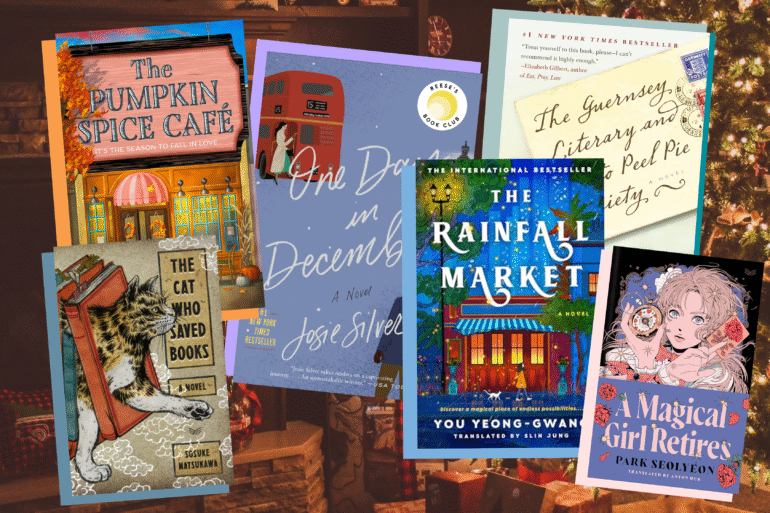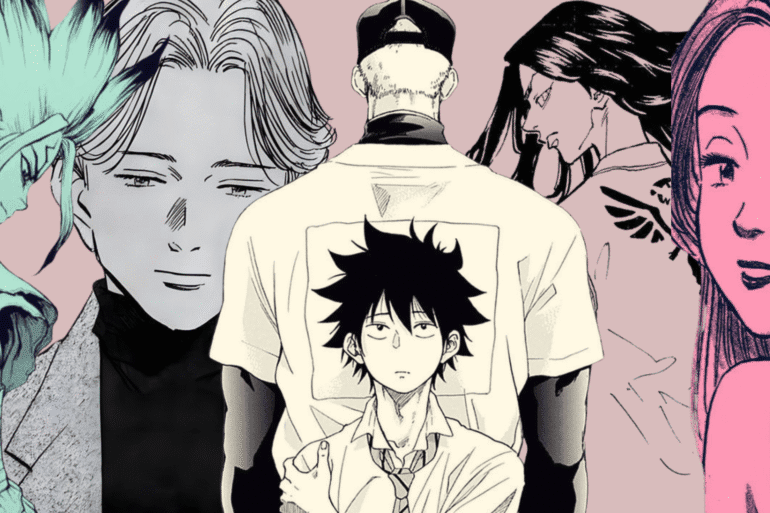Dr. Wilfredo ‘Willy‘ Liangco’s debut nonfiction book ‘Even Ducks Get Liver Cancer’ won the National Book Development Board’s Pablo Tan Prize for Best Book of Non-Fiction Prose in English.
When we think of doctors, we usually think of emergency rooms, hospitals, medicines.
We hardly associate doctors with writing. There are, however, many of them out there who are also gifted wordsmiths.
The Post had the pleasure of interviewing one such doctor—a brilliant oncologist who is just as brilliant a writer (and the critics agree).
We talked to Dr. Wilfredo “Willy” Liangco about his earliest memories as a writer to his journey toward becoming an award-winning author.
His debut book, Even Ducks Get Liver Cancer, is the recipient of the National Book Development Board’s Pablo Tan Prize for Best Book of Non-Fiction Prose in English, as well as a finalist for the Madrigal Gonzales Best Book Award.



Photos from Dr. Wilfredo Liangco’s Instagram account
The book follows his (mis)adventures as a medical intern and oncology fellow at the Philippine General Hospital (PGH) through 49 funny and heartwarming essays.
Let’s get to know the good doctor and his journey to being the award-winning writer he is today.
You are a doctor who writes. What drew you into the written world? Into journaling?
There are many reasons to journal, but I initially got into it mostly to entertain myself. Whenever something interesting happens I write it down, or whenever something terrible happens I try to summon enough fortitude to write it down, too. Or at least a version of it, a more tender or more ridiculous version of it.
And when I read these things back, even the sad and harrowing experiences don’t seem too bad, like I have gained new perspective just with the practice of writing. It can be seen as self-indulgent, which is why it is natural for writers to eventually try to expand the subject matter, to try to go deeper into things other than the self.
There was also a time when I wrote for a particular audience—my four or five friends who religiously read my blog entries. Writing my friends into the stories was initially a ploy to get them to read the blog, but as it turned out their stories proved to be fascinating, more fascinating in fact than my own experiences.
What was your very first memory as a writer?
When I was in Grade 2, I wrote a short story about two birds sitting on a tree branch, talking about escaping the province and flying into the city. Looking back it was very Belle of Beauty and The Beast, with the birds probably singing “There must be more than this provincial life!”
That year I also started to write and illustrate a series of comic books entitled “Power Turtle” and his superhero animal friends. I think I finished 12 notebooks of the comic book. I just plagiarized my favorite DC Comics titles at the time, which were The Legion of Superheroes, Supergirl, and Superman.
These were my father’s comic books from the ’50s and ’60s, and I think they became my first blueprint on plotting and creating characters. I think we start writing by copying others. That was also the time when I realized that I couldn’t draw to save my life.



How does writing help you become a better doctor, and vice versa?
Writing helps me become more reflective. Hospital work can be crazy and so fast-paced that I hardly have time to really process how I manage my emotions during the day and how I deal with people.
It is necessary that I look back and reflect on how I was as a doctor and as a person whenever I write. This helps me to course correct if I find that I haven’t handled things very well. When I put my hospital experiences on paper I also realize that things aren’t as serious or dire as I thought, sort of a delayed perspective.
I think that any occupation, profession, or advocacy that immerses you into the different plights of the human condition should help one to write with empathy, compassion, and restraint.
The other side of the coin there is that I don’t want being a physician to be my entire personality, so in the book I tried to expand on the many different aspects of myself and of my friends.
Who are your writing influences and how did they help you become the writer you are today?
WL: I would have to credit the writers of my favorite sitcom, The Simpsons, as my earliest writing influences. I’ve rewatched so many episodes, read so many guides, that they have undoubtedly influenced my writing one way or another.
I would also like to think that Ray Bradbury, JD Salinger, David Sedaris, Roald Dahl, Butch Dalisay, Cristina Pantoja-Hidalgo, Jessica Zafra, Sarge Lacuesta, and many others have greatly influenced the way I write.
The very long sentences that I am still very prone to using might have been a product of being too into Salinger’s The Catcher In The Rye, Franny and Zooey, Nine Stories, and Raise High The Roofbeam, Carpenters.
What inspired you to come up with a collection of essays?
WL: I’ve been writing essays since 2006 in different online formats, and before I knew it I already had 800 blog entries. Of course many of them were terrible, most were just short paragraphs, but in my mind there were some stories there that might resonate with the general reading public, if only they could be written properly, with proper grammar and sentence construction.
The good thing about having kept an online journal is that I have a source document of events, conversations, and even feelings. These I tried to flesh out into what became Even Ducks Get Liver Cancer, with the confidence that these things really did happen and that I wasn’t just imagining them.
Since 2010 I’ve always had this nagging thought that some day I would write this as a book. The pandemic came and I suddenly had the time to sit on it. It was probably the imperative to generate something plus the fear of not surviving the pandemic that pushed me to complete this project.



How did you choose the 49 essays in your book?
WL: I think I’ve written more than 60 essays for this book. There was an attempt to create 3 major storylines: going through the rigors and poverty that came with years of medical training, dealing with the cancer and death of my father, and dealing with the first few months of the pandemic. I think those 49 essays represented these themes the most.
When my father died I wanted to write something for him, but I was only able to summon enough emotional stability to actually sit down and write it for his 10th death anniversary in 2022, which became the essay “Alleviations.”
“Secret Origins” was initially published in The Philippine Star in the summer of 2007. The newspaper held a weekly competition sponsored by National Bookstore entitled “My Favorite Book,” wherein you submit a book review and if you get published you win P5,000 gift certificates.
The competition became my yearly source of budget for books. There was even a year, I think it was 2005, when I won 2nd prize in the annual competition, and the prize was P15,000 in cash and P15,000 NBS gift certificates, so imagine how mind blown I was!
Certain essays were written as tribute to the important people in my life. “Tales of Terror and Relief” was an ode to my friends, “Private Practicing Marketing Primer” was a love letter to my mother, and “Misadventures in Merville” was my love letter to my internal medicine residency batch mates, and “No Excuses Necessary” was my tribute to PGH.
Could you tell us a bit about your journey toward publication?
The first two essays that I wrote based on the blog entries were “Reasons To Quit” and “Tales of Terror and Relief.” I wrote them as my entries for the Bienvenido N. Santos Creative Writing Center’s 1st Pathography Workshop for Doctors in 2020.
It was the first time those from the academe had ever read my work, and Dr. Marjorie Evasco, Ronald Baytan, Alice Sun-Cua, and John Iremil Teodoro gave encouraging feedback. They were so encouraging that the day after the workshop I officially started to write the book.
I’ve been attending Jessica Zafra’s very fun Writing Bootcamp, and many of the stories in the book were initially submitted for the workshop, including “The Mansion,” “Alone/Alone,” “Judgmental Prognostications,” and “A Day In The Life Of”. In the bootcamp you would read your stories in front of other writers, which became my barometer of whether something works or not.
I’ve completed the manuscript in about nine months, made intensive edits for another three. I wanted to make it to the submission deadlines of university publishing houses, which was the first quarter of the year.
At the time Milflores Publishing, under Atty. Andrea Pasion-Flores, was in the middle of publishing its first few books, and was looking for potential titles. I submitted the manuscript January 2022, fingers crossed that they would accept for publication a title from a debut writer.
I got a call two weeks later that Milflores had accepted the manuscript. The final product was released during the Manila International Book Fair September 2022.



How does it feel having your debut work winning awards?
For years I tried submitting many of these essays, in some shape or form, to different magazines, anthologies, and writing fellowship programs, but other than “Secret Origins” none of them were accepted for publication.
Deservedly so, because the essays weren’t ready, they were too whiny, the jokes were corny, or the stories couldn’t stand on their own. These rejections pushed me to improve on the work, not just by rewriting them, but by reading more books, different kinds of books, getting into different types of works to expand my perspective on things.
So after being rejected so many times, any sort of recognition is a huge blessing, a validation. Becoming a finalist for the Madrigal Gonzalez Best First Book Award was a dream come true, and bagging the best non-fiction at the National Book Awards was surreal.
I am happy that an award can bring your work to a greater audience. Equally if not more validating are feedback from readers who had told me how the book has made them laugh and cry, and that reading the book was an enjoyable experience.
Any advice for “crossover” writers like yourself or those who have an occupation other than writing who want to get into the craft and eventually be published?
My advice would probably be, don’t wait for inspiration to come. Because sometimes when you have the time to write, the inspiration is not there; and when you’re inspired you’re swamped with work. Everyone’s busy, so I think you really have to sit on it, give yourself some deadlines.
Don’t be discouraged by rejections. Rejection is a universal experience.
What are your recommended reads?
I am currently enjoying all the non-children’s books by Roald Dahl. I am now on Innocence, which is a fascinating account of his boyhood and youth.
For short stories my current favorites are Alice Munroe, John Cheever, and Gregorio Brillantes.
I’ve accumulated so many books during the recent book fairs, and some of the fascinating essay collections that I recently enjoyed are Don Jaucian’s Brief Histories, John Jack Wigley’s Home of the Ashfall/Faling Into the Manhole, Isang Bitbit sa Pagsagip sa Sarili by Rommel Bonus, and Romulo Baquiran’s Bone Deep.
What’s next for award-winning writer-doctor Willy Liangco?
I’m currently working on another essay collection.
My first love is really the short story, so I’m trying to work concurrently on that, which is proving to be so difficult so it might take me years and years of writing, mentoring, moaning, drinking, and therapy to finish.








